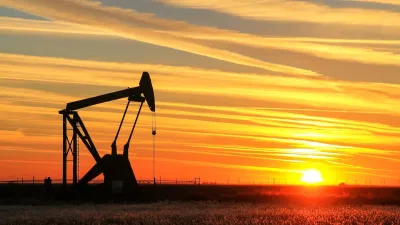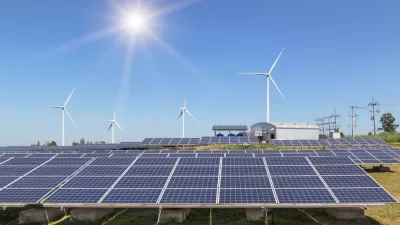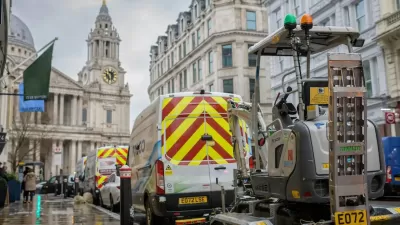A new report highlights the threat posed to a wide range of species by the extraction of fossil fuels in the United States.
The environmental costs of fossil fuel extraction and use are generally viewed in terms of pollution, specifically particulates and their impacts on public health, and GHGs and their contributions to climate change. A new report goes deeper by identifying specific species whose habitats are being devastated by the fossil fuel industries. According to the progressive news site CommonDreams,
"[A] new report [from the Endangered Species Coalition] highlights the destructive impact of fossil fuel consumption in the United States. The report, called Fueling Extinction: How Dirty Energy Drives Wildlife to the Brink, highlights the top 10 US species whose survival is most threatened by the development, extraction, transportation, and consumption of fossil fuels. Coalition members nominated species for inclusion in the report; submissions were then reviewed, judged and voted on by a panel of scientists.
Whether or oil exploration in the arctic (Bowhead Whale and Polar Bear), mountaintop removal and coal mining in Appalachia (Kentucky Arrow Darter and Tan Riffleshell), tar sands extraction in the US West and Canada (Whooping Crane and Wyoming Pocket Gopher), or western shale oil and gas development (Graham's Pentsemon and Sagebrush Lizard), the pattern holds. [As Mitch Merry at the Stop Extinction blog puts it] 'They're being driven closer to the edge of extinction by our nation's continued reliance on energy sources produced in the age of dinosaurs.'"
FULL STORY: US Thirst for Fossil Fuels is Decimating Nature's Wildlife: Report

Alabama: Trump Terminates Settlements for Black Communities Harmed By Raw Sewage
Trump deemed the landmark civil rights agreement “illegal DEI and environmental justice policy.”

Planetizen Federal Action Tracker
A weekly monitor of how Trump’s orders and actions are impacting planners and planning in America.

The 120 Year Old Tiny Home Villages That Sheltered San Francisco’s Earthquake Refugees
More than a century ago, San Francisco mobilized to house thousands of residents displaced by the 1906 earthquake. Could their strategy offer a model for the present?

In Both Crashes and Crime, Public Transportation is Far Safer than Driving
Contrary to popular assumptions, public transportation has far lower crash and crime rates than automobile travel. For safer communities, improve and encourage transit travel.

Report: Zoning Reforms Should Complement Nashville’s Ambitious Transit Plan
Without reform, restrictive zoning codes will limit the impact of the city’s planned transit expansion and could exclude some of the residents who depend on transit the most.

Judge Orders Release of Frozen IRA, IIJA Funding
The decision is a victory for environmental groups who charged that freezing funds for critical infrastructure and disaster response programs caused “real and irreparable harm” to communities.
Urban Design for Planners 1: Software Tools
This six-course series explores essential urban design concepts using open source software and equips planners with the tools they need to participate fully in the urban design process.
Planning for Universal Design
Learn the tools for implementing Universal Design in planning regulations.
Clanton & Associates, Inc.
Jessamine County Fiscal Court
Institute for Housing and Urban Development Studies (IHS)
City of Grandview
Harvard GSD Executive Education
Toledo-Lucas County Plan Commissions
Salt Lake City
NYU Wagner Graduate School of Public Service





























